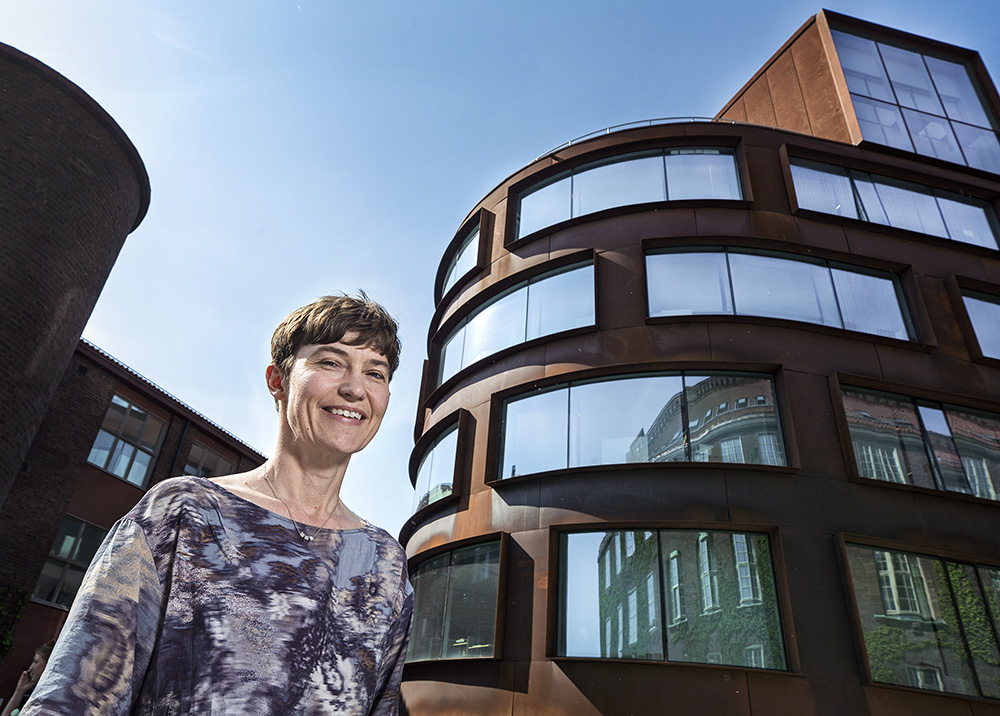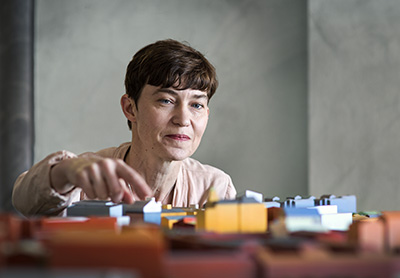
Four years of change
Exciting, developing – and challenging. Katja Grillner can look back on four intensive years as the faculty’s Dean. They were years during which major changes were made at a fast rate – perhaps too fast at times.
At the end of June this year Katja Grillner will step down as Dean of the faculty and as chairperson of the faculty council, but not because she is tired of the job. The quality issues that were the main task for the faculty council continue to be a subject that is close to her heart, but so is her area of research, which is architecture, with a specialisation in critical studies.
“Four years is a long time to be away from your field, and I definitely want to be back there,” she explains.
She already took over as head of department at the School of Architecture earlier this year, though she is also continuing to work in parallel as a dean until her term in office comes to an end.

Since Katja Grillner took up the post of Dean in 2015, quality work has been reformed in numerous areas. For example, the faculty board initiated an investigation of programme structure that resulted in a new process for designing and creating new degree programmes.
“We found that there was no overall strategic analysis in this area. When there is a good idea, there also has to be a strategic discussion from the very beginning.”
The reforms include a new appointments procedure aimed at providing greater clarity and structure when recruiting teaching staff and creating new teaching services. The new procedure was introduced in 2017 and it was expanded one year later to also include research appointments.
“I regard this as an important improvement, so I’m really proud of it.”
But the really “big event”, as she goes on to say, is the development of KTH’s new quality system. It was designed in accordance with the Swedish Higher Education Authority’s new quality assurance model and it is a radical system that is significantly more comprehensive than the one that preceded it.
However, those concerned that this assessment work will divert time and resources from the core activities believe it might be far too comprehensive.
Katja Grillner confirms that this concern is not entirely unfounded, but she believes that if the system is used properly, it can become a valuable tool for development and efficiency-improvement.
“There is a risk that quality assessment will expand and compete with quality implementation. The important thing is to design implementation in such a way that the system also becomes quality-improving, and this is one of the challenges that we are leaving for future faculty councils.”
Another cause for concern is the uncertainty about the faculty board’s position in the future. Katja Grillner believes it is a concern that has been fed by the rapid change of pace in recent years.
“Our new vice chancellor has pushed through a lot of changes – positive changes, to be sure, but things have been moving quickly. Perhaps things have to happen quickly sometimes in order for change to be possible, but then there is the risk of losing out in the preparatory stage.”
To some degree, future faculty councils will face different challenges in their work. There is an organisational change under way, and there are those who think that the influence exerted by the faculty is shrinking to a minimum. Katja Grillner is not one of them.
“I have actually always seen the faculty council primarily as a preparatory body, as an advisor to the vice chancellor, and it is a role that allows us to exert considerable influence. The new faculty council has the same significant role with regard to responsibility for quality development and ensuring that colleagues get on board. At the same time the task is being clarified on a number of points relating to ethics and academic values, among other things. It’s good to have a bit more clarity.”
Text: Ursula Stigzelius

